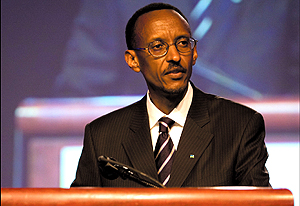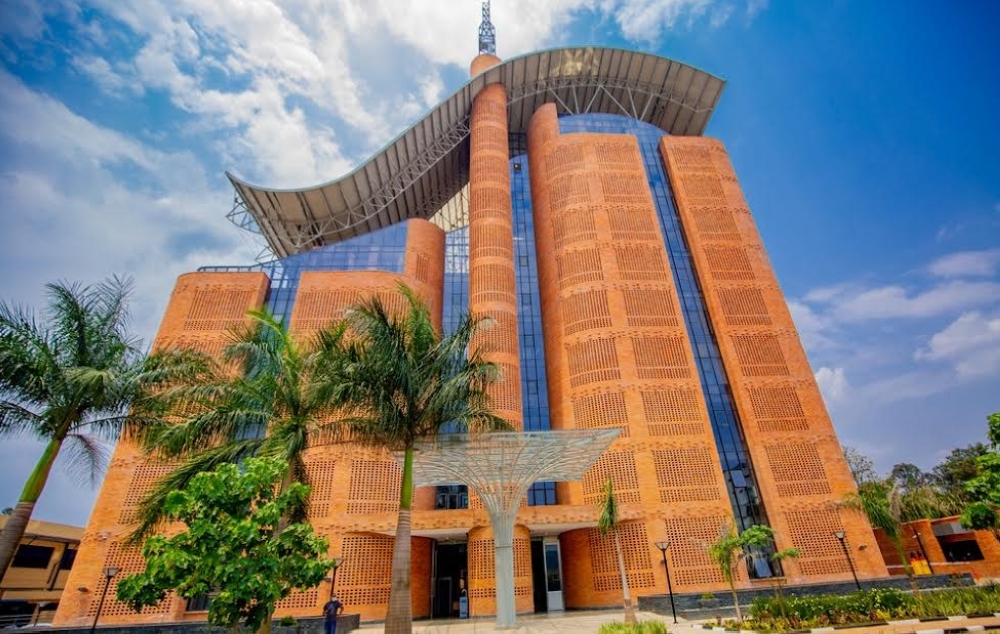BOSTON - At the 2008 Annual Meeting of the American Association for the Advancement of Science (AAAS) in Boston, the United States, President Kagame outlined the importance of science of technology for development and the challenges Rwanda faces in this field. “There are simply no alternatives for achieving greatly improved quality of life without deploying the power of science and technology.”


BOSTON - At the 2008 Annual Meeting of the American Association for the Advancement of Science (AAAS) in Boston, the United States, President Kagame outlined the importance of science of technology for development and the challenges Rwanda faces in this field. "There are simply no alternatives for achieving greatly improved quality of life without deploying the power of science and technology.”
But the triangular relationship between government, business and academia that brings about the continuous expansion of knowledge that in turn leads to prosperity, something the West takes for granted, does not exist in Rwanda, explained President Kagame last week.
The President outlined the steps Rwanda is taking to foster this relationship that will offer opportunities to break away from trading exclusively in raw materials and natural resources.
In the knowledge that "Rwandans themselves constitute the principal national asset,” the government has turned its attention to education, the President explained.The educational budget now stands at 25 per cent of the national budget. Furthermore, since 2004, primary school education and since 2005, the first three years of secondary school are tuition-free.
President Kagame highlighted that as a result, 96 per cent of school-going age children in Rwanda now have access to education.
He continued: "the teaching of mathematics and science at all levels of our educational system now constitutes a national priority.”
As far as the higher education sector is concerned, the President stressed that Rwanda’s universities and institutes are all undergoing capacity development in teaching science and technology subjects.
Perhaps most significantly the government has created a ministry in charge of science and technology and increased expenditure on science and technology sector. Presently 1.6 per cent of the country’s Gross Domestic Product (GDP), the target is that by 2012 this will increase to 5 per cent.
And progress is already being made. The President spoke of the fact that the leading mobile phone company’s subscribers numbered 319,274 in 2006 which more than doubled to 612,522 in 2007 – with a projection of one million subscribers for 2008. Stressing the importance of bring our universities and tertiary sector in general to a position where they can provide more able professionals and technicians, President Kagame encouraged visiting scientist programmes and promoted a comprehensive audit of the science and technology sector in order to develop a capacity building strategy.
The President applauded what he termed the United States’ "intellectual entrepreneurship,” urging Rwanda to follow the American example of universities successfully linking their trades to industry, allowing knowledge to flow consistently between the two, leading to tremendous commercial results.
Ends




